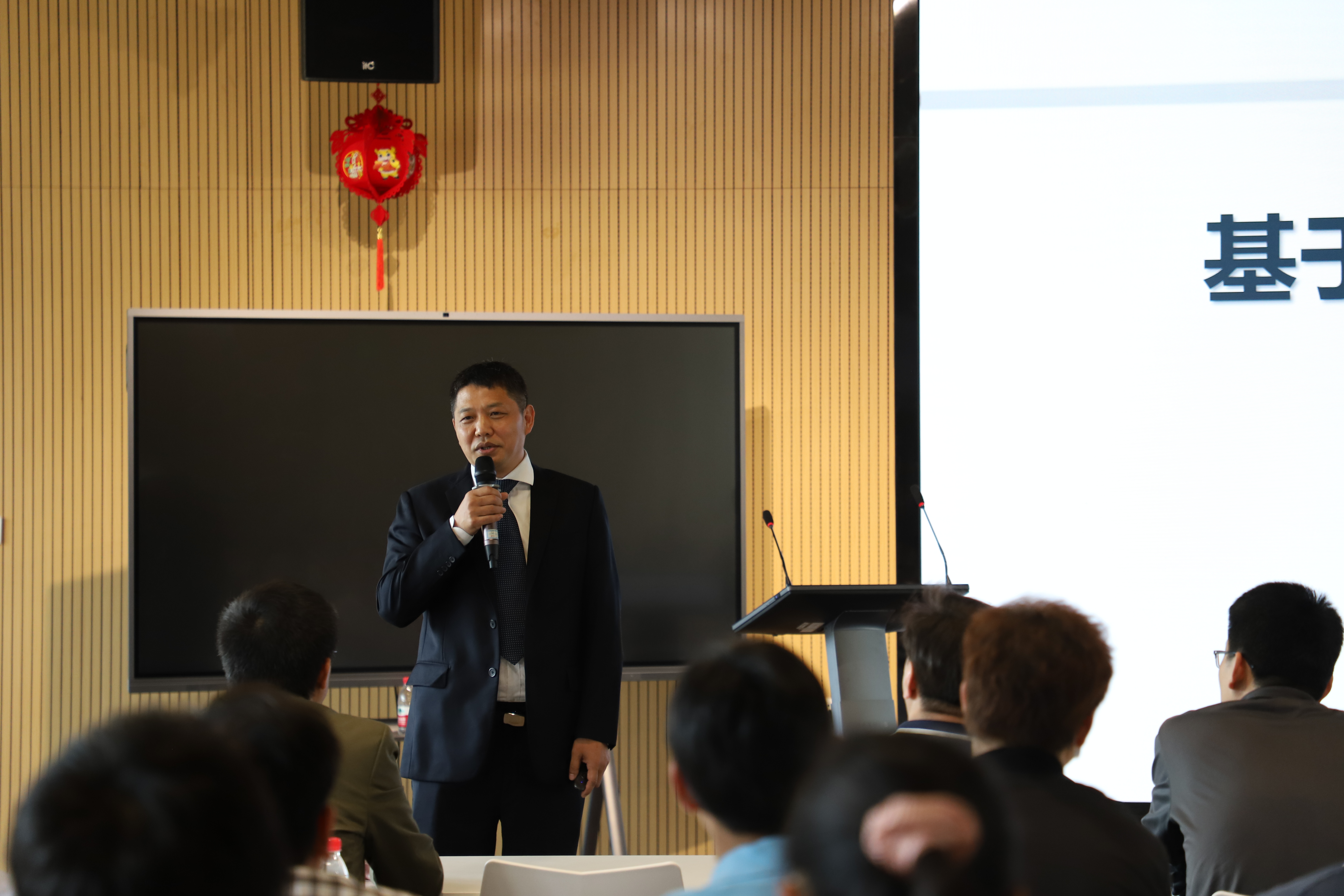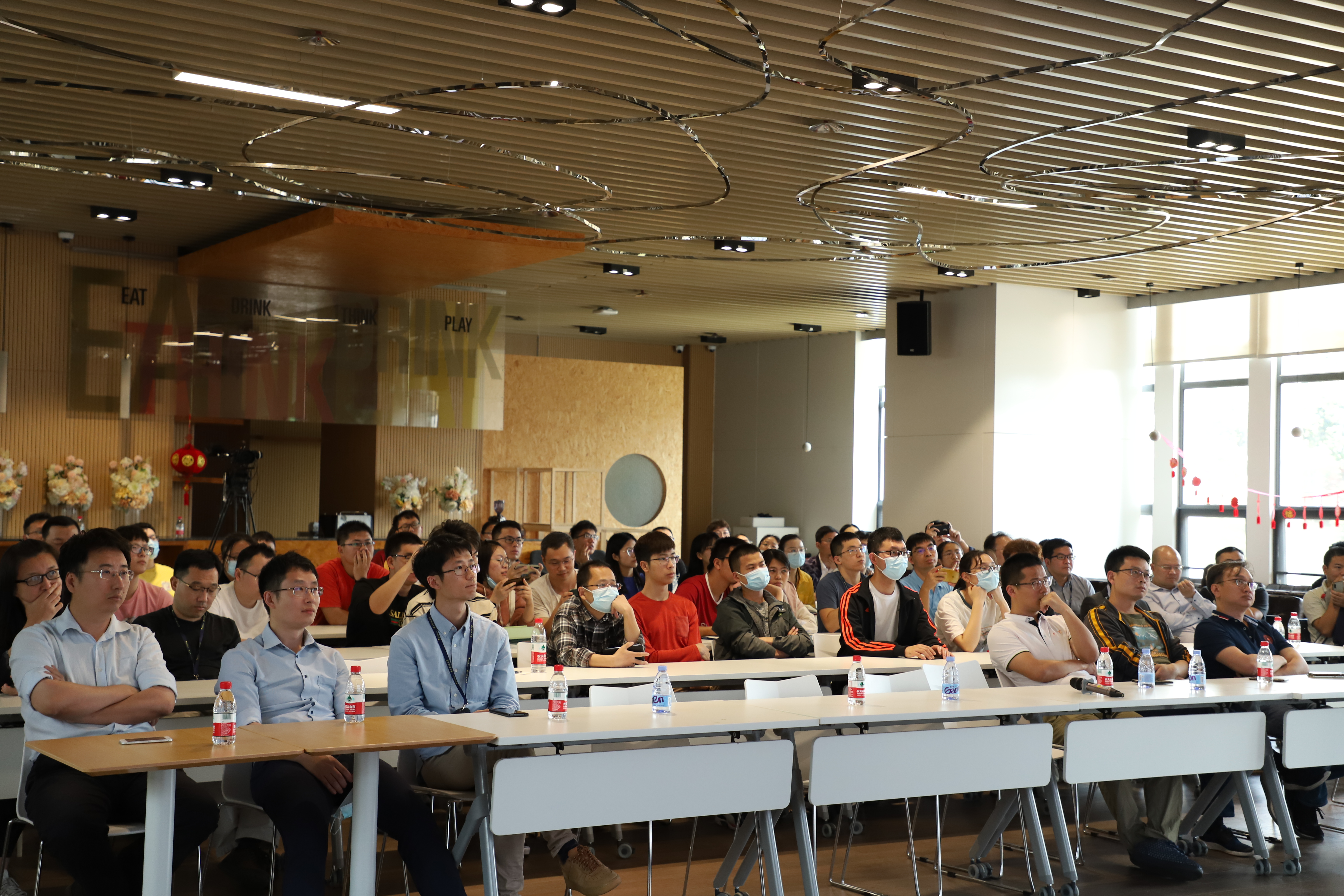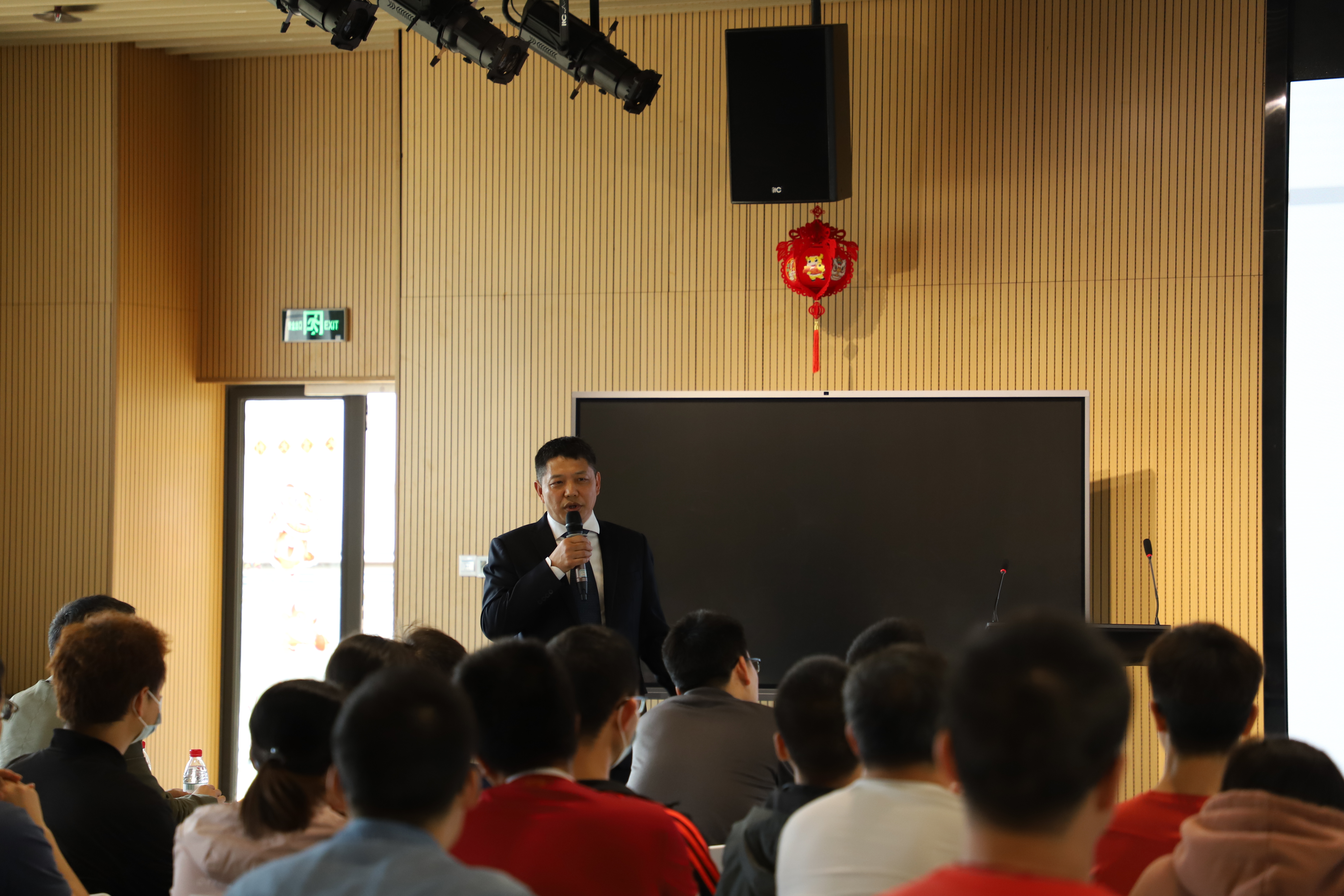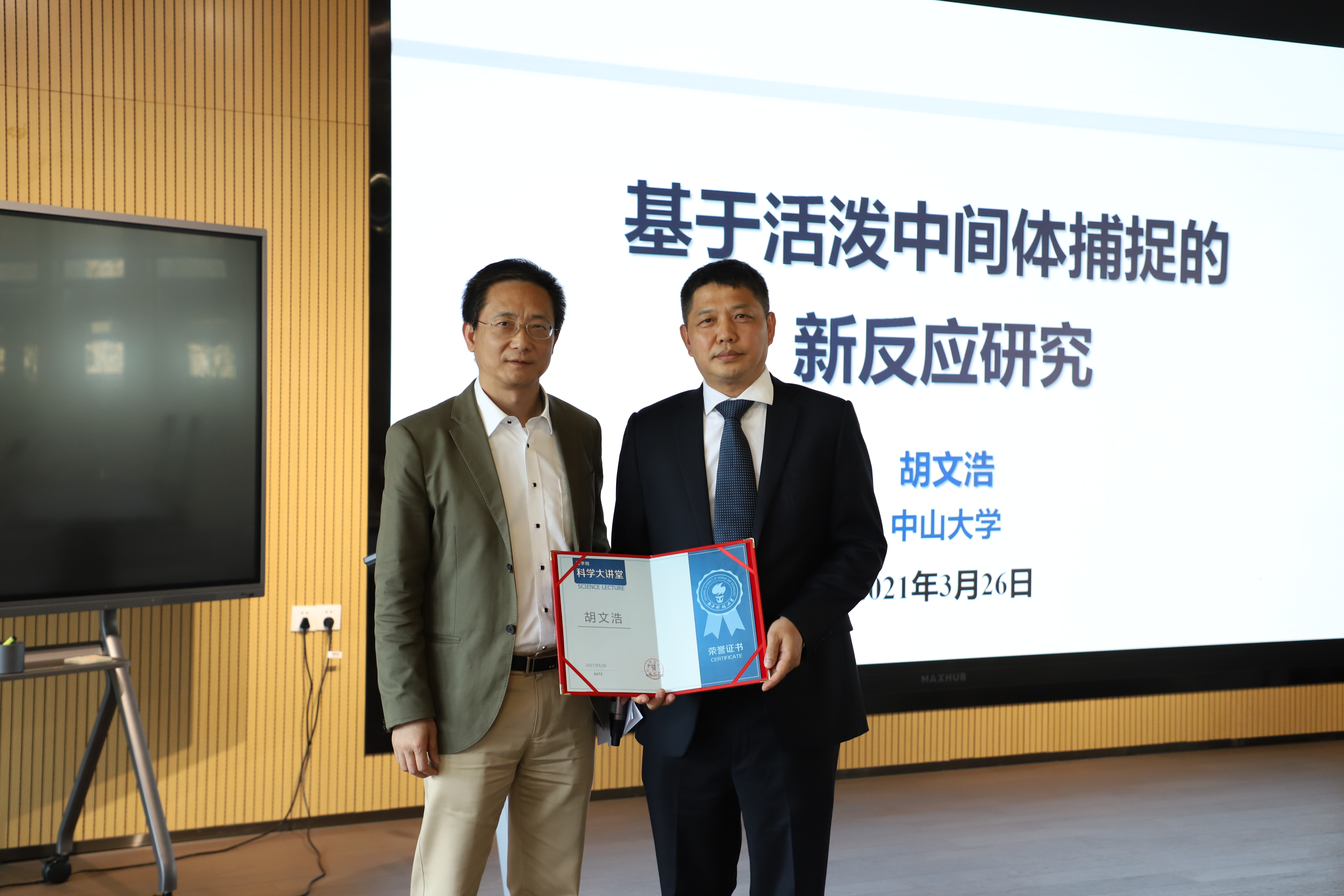Wenhao HU: Novel Reactions via Trapping of Active Intermediates
Pei WANG 2021-03-30
On March 26, 2021, Prof. Wenhao HU, dean of School of Pharmaceutical Sciences, Sun Yat-Sen University was invited to the 54th Science Lecture of College of Science, SUSTech. He gave a lecture themed with“novel reactions via trapping of active intermediates”, which was chaired by Prof. Minghua XU of Dept. of Chemistry, SUSTech.
Guest Introduction:

Prof. Wenhao HU
Prof. Wenhao HU received his B.S. in chemistry from Sichuan University (1987), M.S. from Chengdu Institute of Organic Chemistry (1990), and Ph.D from Hong Kong Polytechnic University with Professor Albert S.C. Chan (1998), and then became a postdoctoral fellow at University of Arizona with Professor Michael P. Doyle. During 2002-2006, he worked as a medicinal chemist at Genesoft in South San Francisco and a process chemist at Bristol-Myers Squibb in New Jersey. In 2006, Prof. Hu joined East China Normal University as a Professor of chemistry, and the head of Shanghai Engineering Research Center of Molecular Therapeutics and New Drug Development. In August, 2016, he moved to Sun Yat-sen University as a professor and dean of School of Pharmaceutical Sciences. His main research interests include: (1) novel multicomponent reactions (MCRs) by trapping of reactive intermediates for building compound library of new chemical entities; (2) discovery of hit/lead compounds from compound library; (3) preclinical studies of new antibiotics, focusing on peptide deformylase (PDF) inhibitors.
Lecture Review:
Multi-component reaction involving metal carbene plays a special role in the construction of complex chiral compounds, and has attracted more and more attention from synthetic chemists. Professor Wenhao Hu’s research group is committed to developing a multi-component reaction based on the electrophilic capture of active ylide intermediates with the involvement of metal carbene. The ylide intermediates include ammonium ylide intermediates formed by amine nucleophilic attacking metal carbene and the oxonium ylide intermediates formed by alcohol attacking. Through the strategy of electrophilic capture of multi-component reactions, they successfully generated precise synthesis of a series of functionally diversified chiral molecules, which has important value in the synthesis of drug molecules.
During the lecture, Prof. Hu detailed the multi-component reactions they developed via trapping of active intermediates, and some major researches his group are committed to.

A glance of the lecture
The metal carbene produced by the reaction between carbene precursor and transition metal is a highly active intermediate, which could facilitate many novel reactions. The chemistry of metal carbene has become one of the most popular fields in organic chemistry. Multi-component reaction involving metal carbene combines the high activity of the metal carbene and the high efficiency of the multi-component reaction. It is an efficient and atom-economic synthesis method and an important way to construct complex multi-chiral center compounds. The basis for such reaction is that the metal carbene contains a divalent carbon atom, which has high electrophilicity. After being attacked by a nucleophilic reagent as an electrophile, it has nucleophilicity and continues to participate in the reaction. During the reaction process, the carbene carbon has achieved polarity reversal.
The high reactivity of metal carbene has laid the foundation for the development of new reactions, it also brings challenges to reaction control. The multi-component reaction based on metal carbene has become more and more complicated due to the increase of reaction components, and the main challenge is to properly control the chemical, regional and stereoselectivity of the reaction. Prof. Wenhao Hu’s research interests mainly focus on multi-component reactions via the trapping of active intermediates. The metal-carbene carbon center can accept the nucleophilic attack from alcohols, amines, or electron-rich nitrogen-containing aromatic heterocycles to generate hydroxy ylide, ammonium ylide or zwitterionic intermediate, which can be trapped by coexistent electrophile and further to establish multicomponent products through delayed proton migration.

Prof. Hu is delivering the lecture
Interaction:
After the lecture, the audience asked questions about the design of multi-component reaction and the challenges involved in. Prof. Hu also further introduced the potential of multi-component reaction being applied in new drug synthesis.
In conclusion, Prof. Minghua XU handed an honorary certificate to Prof. HU and had a photo with him.





